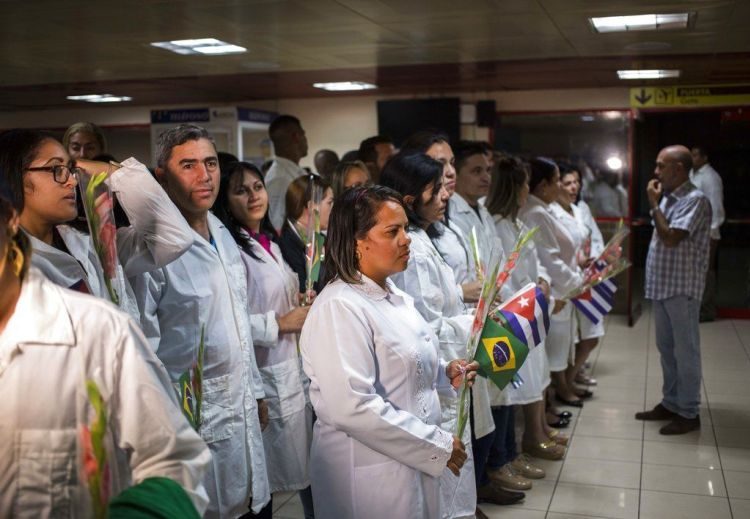Cuban President Miguel Díaz-Canel criticized this Sunday the policy and actions of the United States government to hinder the “honorable history” of the island’s medical “collaboration” abroad, one of the State’s main sources of income today.
“The empire’s audacity, slander, perversity crumble before the moral dignity accumulated by the honorable history of the Cuban health missions,” wrote the president of the Caribbean country on his Twitter account.
La desfachatez, la mentira, la perversidad del imperio se derrumban ante la altura moral acumulada por la digna historia de las misiones cubanas en la salud. #SomosCuba #SomosContinuidadhttps://t.co/dKJT8hQIRZ
— Miguel Díaz-Canel Bermúdez (@DiazCanelB) August 31, 2019
In recent months the government of Havana has repeatedly accused President Donald Trump’s administration of trying to harm Cuban medical missions with actions such as a plan worth millions to “discredit and sabotage” the export of health services by the Caribbean country.
The Cuban Foreign Ministry condemned this week the approval of a plan endowed with funds supposedly from the U.S. Agency for International Development (USAID), and said that it joins the “crude pressures exerted against several governments to hinder Cuban cooperation.”
Cuba denounces U.S. plan worth millions to “sabotage” its medical cooperation
It also stated that Washington’s claims that the Caribbean country incurs in the trafficking of persons or the practice of slavery, in order to “denigrate” the work of health professionals and technicians in several countries, is an unfounded “immoral lie.”
Cuba considers its international medical cooperation as one of the pillars of its foreign policy, which since 1963 with the first mission sent to Algeria has involved some 407,000 health professionals, technicians and personnel in 164 nations, according to official data.
In 2018, Cubans on health missions amounted to about 55,000 in 67 countries.
The export of professional services―mainly doctors and teachers―is Cuba’s main source of income. University education on the island is completely free and every year several thousand are licensed in the medical career to practice inside or outside the country.
Last year, medical missions abroad contributed almost 6.4 billion dollars to the country, way more than the 1.3 billion earned from “support services,” the country’s second declared source of income, which includes assistance to vessels and airplanes, among other services.
The vast majority of Cuban professionals carry out their work in disadvantaged communities and in remote areas, where specialists rarely go to.
However, critics of these programs consider them a detrimental practice for Cuban doctors, because a part of their salary goes to the state coffers and they are not allowed to take their families with them.
Meanwhile, the Cuban government states that Cuban professionals who participate in these programs do so voluntarily and “continue to receive their salary in full in Cuba and also have a stipend in the country of destination, together with other forms of compensation.”










